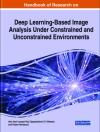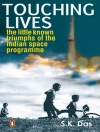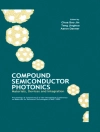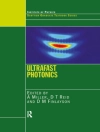The second edition of this book illuminates the fundamental principle and applications of probability-based multi-objective optimization for material selection in viewpoint of system theory, in which a brand new concept of preferable probability and its assessment as well as other treatments are introduced by authors for the first time. Hybrids of the new approach with experimental design methodologies (response surface methodology, orthogonal experimental design, and uniform experimental design) are all performed; robustness assessment and performance utility with desirable value are included; discretization treatment in the evaluation is presented; fuzzy-based approach and cluster analysis are involved; applications in portfolio investment and shortest path problem are concerned as well.
The authors wish this work will cast a brick to attract jade and would make its contributions to relevant fields as a paving stone. It is designed to be used as a textbook for postgraduate and advanced undergraduate students in relevant majors, while also serving as a valuable reference book for scientists and engineers involved in related fields.
Inhaltsverzeichnis
History and Current Status of Material Selection with Multi – objective Optimization.- Introduction to Multi – objective Optimization in Material Selections.- Fundamental Principle of Probability – Based Multi – Objective Optimization and Applications.- Robustness Evaluation with Probability-Based Multi-objective Optimization.- Extension of Probability – based Multi – objective Optimization in Condition of the Utility with Desirable Value.- Hybrids of Probability – Based Multi – Objective Optimization with Experimental Design Methodologies.- Discretization of Simplified Evaluation in Probability-Based Multi-objective Optimization by Means of GLP and Uniform Experimental Design.- Fuzzy- based Probabilistic Multi-objective Optimization.- Cluster Analyses of Multiple Objectives.- Applications of Probability – based Multi – objective Optimization beyond Material Selection.- Treatment of Portfolio Investment by Means of Probability-Based Multi-objective Optimization.- Treatment of Multi-objective Shortest Path Problem by Means of Probability-Based Multi-objective.- Discussion on preferable probability, discretization, error analysis and hybrid of sequential uniform design with PMOO.- General Conclusions.
Über den Autor
Dr. Maosheng Zheng received his Bachelor’s degree in Theoretical Physics from Northwest University, Xi’an, China, in 1983, Master’s degree in Electronic Physics from Xidian University, Xi’an, China, in 1985, and Ph.D. degree in Materials Science and Engineering from Northwestern Polytechnic University, Xi’an, China, in 1992. From June 1994 to June 2006, Dr. Zheng has been in School of Materials Science and Engineering, Xi’an Jiaotong University, as Professor, and since June 2006, Dr. Zheng has been in School of Chemical Engineering, Northwest University, as Professor.
Dr. Zheng focuses on the research of Materials Science and Technology. His recent research interests include material selection with multi-objective optimization, material technology, energy resource material and technology, renewable energy conversion and utilization, etc. Till 2022, Dr. Zheng has published 3 monographs (first authored 2 monographs, Springer; 1 co-authored, Science Press) more than 300 peer-reviewed papers in international journals and conferences and chaired “863” project and many projects of Sci. & Tech. Ministry and Shaanxi Province of China. He is Member of China Energy Society, Vice Chairman of Shaanxi Corrosion and Protection Society, and served as Reviewer of several international journals. He was Recipient of State Council special allowance, second prize of Science and Technology Progress Award of China Aviation Industry Corporation, third prize of Science and Technology Progress Award of the Ministry of Education, second prize of Huo Yingdong Young Teacher (Research), The 2nd Youth Science and Technology Award of Shaanxi Province, and second prize of the Natural Science Award of China Higher Education, respectively.
Jie Yu received her Bachelor’s degree in Polymer Science and Technology from Northwestern Polytechnic University, Xi’an, China, in 1987. From July 1987 to December 1992, Yu worked at Xi’an Far East Machinery Manufacturing Company as Assistant Engineer responsible for the design and processing of rubber and plastic parts; from January 1993 to September 2007, Yu served as Engineer in Department of Polymer Materials of Xi’an Jiaotong University; from September 2007 to August 2020, Yu worked as Senior Engineer in College of Life Sciences of Northwest University; since August 2020, Yu served as Professor-leveled Senior Engineer at College of Life Sciences of Northwest University.
Jie Yu focuses on design of experiment and optimization, polymer materials and their applications in medicine. Till 2022, Yu has published more than 50 scientific research papers, 1 monograph (co-authored, Springer), chaired and completed 2 key projects of Shaanxi Province, participated in the completion of 5 national and provincial key projects, and 2 enterprise cooperation projects, obtained national invention patents 3 items, and 2 items have been transformed to serve the society, and won 1 advanced worker of Northwest University, 2 science and technology awards of Shaanxi Provincial Higher Education Institutions, and 1 gold medal of Shaanxi Science and Technology Workers Innovation and Entrepreneurship Competition.
Dr. Haipeng Teng received his Bachelor’s degree in Thermal and Power Engineering from Xi’an Jiaotong University, Xi’an, China, in 2002 and Ph.D. degree in Thermal and Power Engineering from Institute of Engineering Thermophysics of Chinese Academy of Sciences, Beijing, China, in 2011. From July 2002 to July 2006, Dr. Teng has been Teacher in College of Mechanical and Electrical Engineering, Shaanxi University of Science and Technology. In July 2011, Dr. Teng started as Lecturer in School of Chemical Engineering, Northwest University and Associate Professor in 2014. Dr. Teng focuses on the research of energy resource material, thermal energy conversion and utilization, renewable energy, etc. Till 2022, Dr. Teng has published 2 monographs (co-authored, Springer) and more than 30 peer-reviewed papers in international journals and conferences and completed more than ten scientific research projects.
Ying Cui received her Bachelor’s degree in Mechanical Engineering from Shaanxi University of Technology in July 1996 and Master of Industrial Engineering from Sichuan University in 2014. From August 1996 to May 2018, Cui worked at Baoji Equipment Factory of China Railway Electrification Bureau Group Company, and since February 2007, she served as Senior Engineer. Since May 2018, Cui served as Chief Engineer and Senior Engineer of China Railway Baoji Railway Electrical Equipment Inspection Co. Cui is Engineering and Technical Expert of China Railway Electrification Bureau Group Co., Ltd., first-level procurement expert of China Railway Corporation, and a top talent in Baoji High-tech Zone. Cui has successively engaged in the design, manufacturing, and testing of electrified railways and urban rail contact net products, R & D and testing of mechanical components for electrified railways and urban rail transit; presided over the “Shaanxi Railway Electrical Equipment Testing Service Platform”, “Rigid Suspension Anti-seize Device”, “Straddle-type Monorail Contact Rail Power Supply System Product Research”, more than 20 key scientific research projects, etc.; presided over the revision of the railway industry standard “Electrified Railway Busbars and Components”, participated in the “Rail Transit Rigid Overhead Catenary Project Construction Quality Acceptance Standard” and other standards, and published more than 10 papers, 1 monograph (co-authored, Springer), obtained more than 40 patents. Cui won the first prize of Science and Technology Progress of China Railway Engineering Corporation, a number of science and technology awards from the city and group companies.
Yi Wang received her Bachelor’s degree in Mechanical Design, Manufacturing and Automation from Northwest A & F University, China, in 2014 and Master’s degree in Mechanical Design and Theory from Xi’an Shiyou University, China, in 2017. Since June 2018, Wang has been in School of Chemical Engineering, Northwest University, as Assistant Engineer engaged mainly in Process Equipment and Control Engineering, since October 2020, she served as Engineer. Till 2022, Wang has published 2 monographs (co-authored, Springer) and 10 peer-reviewed papers in international journals and conferences.












